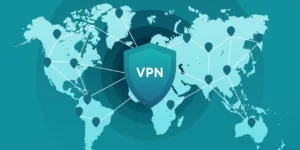You cannot help but sense that privacy is being violated. As of the date of this writing, net neutrality is no longer in effect. ISPs will soon be able to sell their customers’ personal information to outside parties, and we are all currently subject to some form of surveillance. It’s time to start thinking about buying a Free VPN if you don’t already have one.
In this post, we’ll clarify how VPNs operate, define them for the uninitiated, and explain why they form the basis of any privacy plan.
What is VPN?
Using a VPN can help you protect your online privacy. Consider a tunnel to demonstrate how a virtual private network functions. You and a VPN server are on opposite sides of the tunnel, which has you on one side.
Using a VPN to conduct an online search allows you to browse the Internet anonymously as you pass via a secure tunnel to the VPN server on the other end, retrieve the information you need, and transfer it back to your device. By doing this, you increase your privacy from your ISP and hackers who might otherwise be able to monitor your online activities.
But why is using a VPN necessary to protect the privacy of your searches? Like your fingerprints, your computer has a different IP address. Your IP address can be used to identify you and reveal to curious eyes anything you have accessed online. However, a VPN functions as a privacy shield and conceals your fingerprint like a pair of gloves, preventing hackers from stealing your data or, worse yet, your identity.
However, you need to be concerned about more than simply hackers. Even your ISP can collect and sell your data to advertisers in the modern world. Many people find that using a VPN gives them control over their privacy.
A VPN is intended to support online anonymity. By encrypting your data, it offers a certain level of privacy by preventing advertisers and those with bad intentions, like identity thieves, from accessing your information. Some VPNs have a no-log policy, meaning that not even the VPN service keeps track of your online activities.
When an employee wants to access the company’s database while working from home or while traveling, businesses utilize a VPN to keep information secure. This kind of VPN service gives the impression that your computer is connected to the company’s servers and gives you access to data and programs precisely as if you were at the office.
How does VPN work?
The VPN client, which is your device, and the VPN’s private server create a private, secure, and encrypted network between each other. The encrypted data that is delivered from your device to the Internet makes it appear as though it originates from the VPN server rather than your computer.
A virtual private network (VPN) can be considered a safe “tunnel” that allows data to be sent securely over the Internet between a VPN client and server.
If you use a VPN, your device will connect straight to a server run by the VPN provider before traveling to its actual location. Even the most skilled hackers can no longer see what you are doing online thanks to the connection’s encryption, which effectively scrambles your data to make it unintelligible.
Furthermore, websites are less able to track your online activity because they receive requests from the VPN server rather than your actual location.
How to use a VPN?
So now you are aware of the benefits of using a VPN. Despite their seeming complexity, using them couldn’t be simpler. Additionally, they are incredibly inexpensive, usually costing only a few pounds or dollars every month.
- Join a VPN service.
Selecting a service is the first step in using a VPN. You can choose from free VPN or paid versions.
- Select a VPN server.
Typically, a large “connect” button will be visible once you log in to the app. By doing this, a server will typically be selected automatically — either the one that will provide the fastest connection or the one that is closest to you.
- Switch on the kill switch
Many VPN providers have a kill switch that, in the event that the VPN connection dies unexpectedly, will prevent any data from being transferred via the internet connection. By guaranteeing that your actual location is never “leaked” helps to preserve your privacy.
Feel secure using the Internet and your apps, knowing that your security and privacy are well-protected.
Conclusion
You may enhance your whole Internet experience by using a VPN configuration in addition to keeping you safe online. By helping you get around network congestion and throttling, using a VPN service can boost your performance. Bypassing censorship and repressive networks with the use of a VPN can also help you avoid data retention, cut costs on trips, and save money on shopping. With the help of a VPN, you may conceal your location and get around any geographically-based restrictions or other circumstances, such as regional pricing.
Written by Efrat Vulfsons








